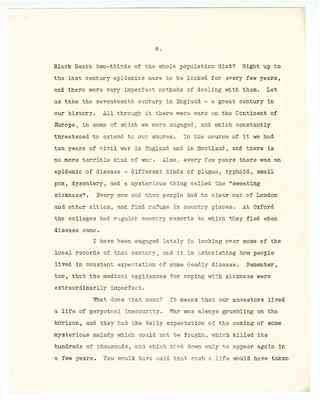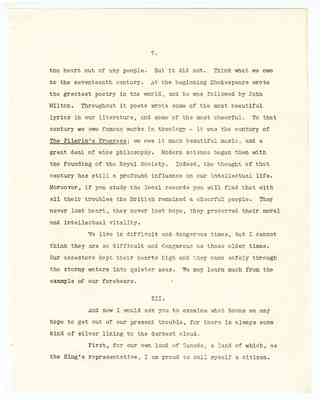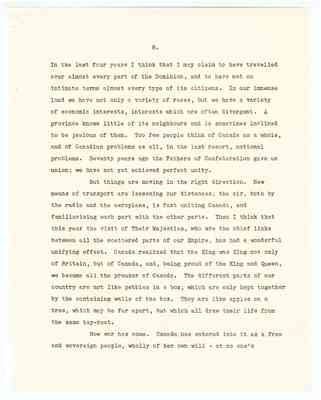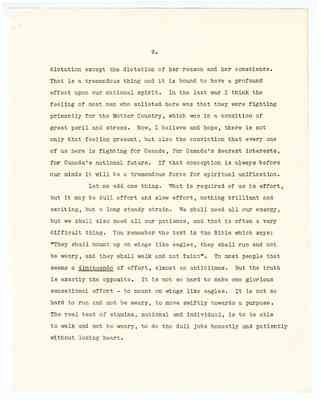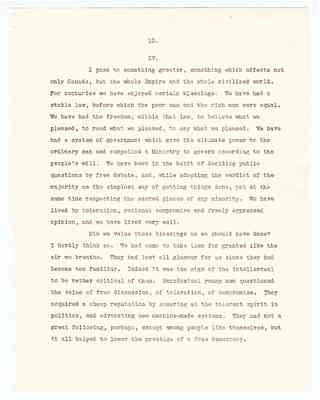Pages
page_0006
6.
Black Death two-thirds of the whole population died? Right up to the last century epidemics were to be looked for every few years, and there were very imperfect methods of dealing with them. Let us take the seventeenth century in England - a great century in our history. All through it there were wars on the Continent of Europe, in some of which we were engaged, and which constantly threatened to extend to our shores. In the course of it we had ten years of civil war in England and in Scotland, and there is no more terrible kind of war. Also, every few years there was an epidemic of disease - different kinds of plague, typhoid, small pox, dysentery, and a mysterious thing called the "sweating sickness". Every now and then people had to clear out of London and other cities, and find refuge in country places. At Oxford the colleges had regular country resorts to which they fled when disease came.
I have been engaged lately in looking over some of the local records of that century , and it is a stonishing how people lived in constant expectation of some deadly disease. Remember, too, that the medical appliances for coping with sickness were extraordinarily imperfect.
What does that mean? It means that our ancestors lived a life of perpetual insecurity. War was always grumbling on the horizon, and they had the daily expectation of the coming of some mysterious malady which could not be fought, which killed its hundreds of thousands, and which died down only to appear again in a few years. You would have said that such a life would have taken
page_0007
7
the heart out of any people. But it did not. Think what we owe to the seventeenth century. At the beginning Shakespeare wrote the greatest poetry in the world, and he was followed by John Milton. Throughout it poets wrote some of the most beautiful lyrics in our literature, and some of the most cheerful. To that century we owe famous works in theology - it was the century of The Pilgrim's Progress: we owe it much beautiful music, and a great deal of wise philosophy. Modern science began then with the founding of the Royal Society. Indeed, the thought of that century has still a profound influence on our intellectual life. Moreover, if you study the local records you will find that with all their troubles the British remained a cheerful people. They never lost heart, they never lost hope, they preserved their moral and intellectual vitality.
We live in difficult and dangerous times, but I cannot think they are so difficult and dangerous as those older times. Our ancestors kept their hearts high and they came safely through the stormy waters into quieter seas. We may learn much from the example of our forebears.
III.
And now I would ask you to examine what boons we may hope to get out of our present trouble, for there is always some kind of silver lining to the darkest cloud.
First, for our own land of Canada: a land of which, as the King's representative, I am proud to call myself a citizen.
page_0008
8.
In the last four years I think that I may claim to have travelled over almost every part of the Dominion, and to have met on intimate terms almost every type of its citizens. In our immense land we have not only a variety of races, but we have a variety of economic interests, interests which are often divergent. A province knows little of its neighbours and is some times inclined to be jealous of them. Too few people think of Canada as a whole, and of Canadian problems as all, in the last resort, national problems. Seventy years ago the Fathers of Confederation gave us union; we have not yet achieved perfect unity.
But things are moving in the right direction. New means of transport are lessening our distances; the air, both by the radio and the aeroplane, is fast uniting Canada, and familiarising each part with the other parts. Then I think that this year the visit of Their Majesties, who are the chief links between all the scattered parts of our Empire, has had a wonderful unifying effect. Canada realized that the King was King not only of Britain, but of Canada, and, being proud of the King and Queen, we became all the prouder of Canada. The different parts of our country are not like pebbles in a box, which are only kept together by the containing walls of the box. They are like apples on a tree, which may be far apart, but which all draw their life from the same tap-root.
Now war has come. Canada has entered into it as a free and sovereign people, wholly of her own will - at no one's
page_0009
9.
dictation except the dictation of her reason and her conscience. That is a tremendous thing and it is bound to ha ve a profound effect upon our national spirit. In the last war I think the feeling of most men who enlisted here was that they were fighting primarily for the Mother Country, which was in a condition of great peril and stress. Now, I believe and hope, there is not only that feeling present, but also the conviction that every one of us here is fighting for Canada, for Canada's dearest interests, for Canada's national future. If that conception is always before our minds it will be a tremendous force for spiritual unification.
Let me add one thing. What is required of us is effort, but it may be dull effort and slow effort, nothing brilliant and exciting, but a long steady strain. We shall need all our energy, but we shall also need all our patience, and that is often a very difficult thing. You remember the text in the Bible which says: "They shall mount up on wings like eagles, they shall run and not be weary, and they shall walk and not faint". To most people that seems a diminuendo of effort, almost an anticlimax. But the truth is exactly the opposite. It is not so hard to make one glorious sensational effort - to mount on wings like eagles. It is not so hard to run and not be weary, to move swiftly towards a purpose. The real test of stamina, national and individual, is to be able to walk and not be weary, to do the dull jobs honestly an d patiently without losing heart.
page_0010
10.
IV.
I pass to something greater, something which affects not only Canada, but the whole Empire and the whole civilized world. For centuries we have enjoyed certain blessings. We have had a stable law, before which the poor man and the rich man were equal. We have had the freedom, within that law, to believe what we pleased, to read what we pleased, to say what we pleased. We have had a system of government which gave the ultimate power to the ordinary man and compelled a Ministry to govern according to the people's will. We have been in the habit of deciding public questions by free debate, and, while adopting the verdict of the majority as the simplest way of getting things done, yet at the same time respecting the sacred places of any minority. We have lived by toleration, rational compromise and freely expressed opinion, and we have lived very well.
Did we value those blessings as we should have done? I hardly think so. We had come to take them for granted like the air we breathe. They had lost all glamour for us since they had become too f amiliar. Indeed it was the sign of the intellectual to be rather critical of them. Paradoxical young men questioned the value of free discussion, of toleration, of compromise. They acquired a cheap reputation by sneering at the tolerant spirit in politics, and advocating new machine-made systems. They had not a great following, perhaps, except among people like themselves, but it all helped to lower the prestige of a free democracy.
